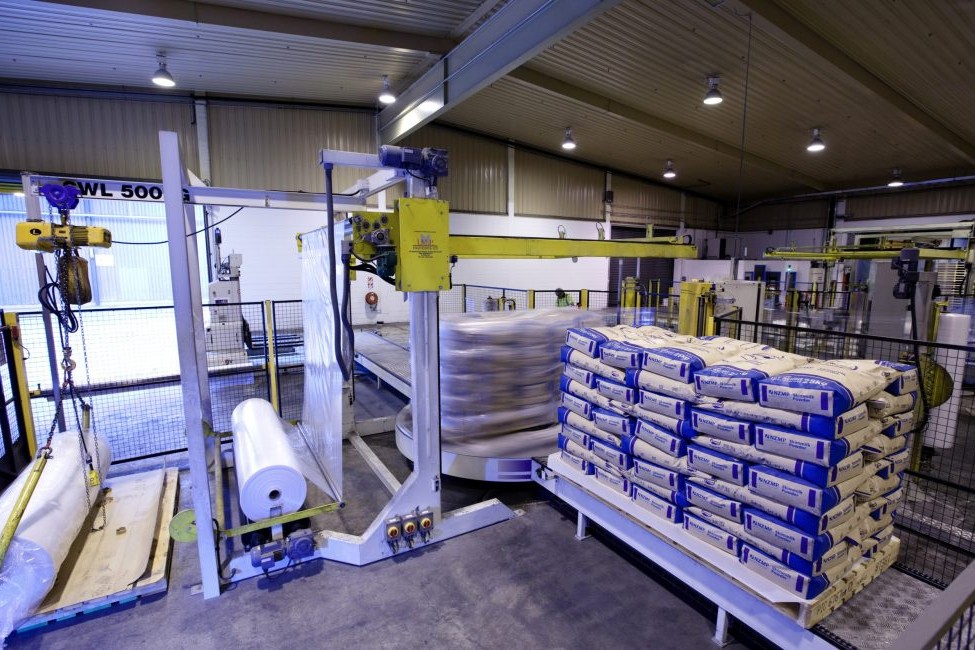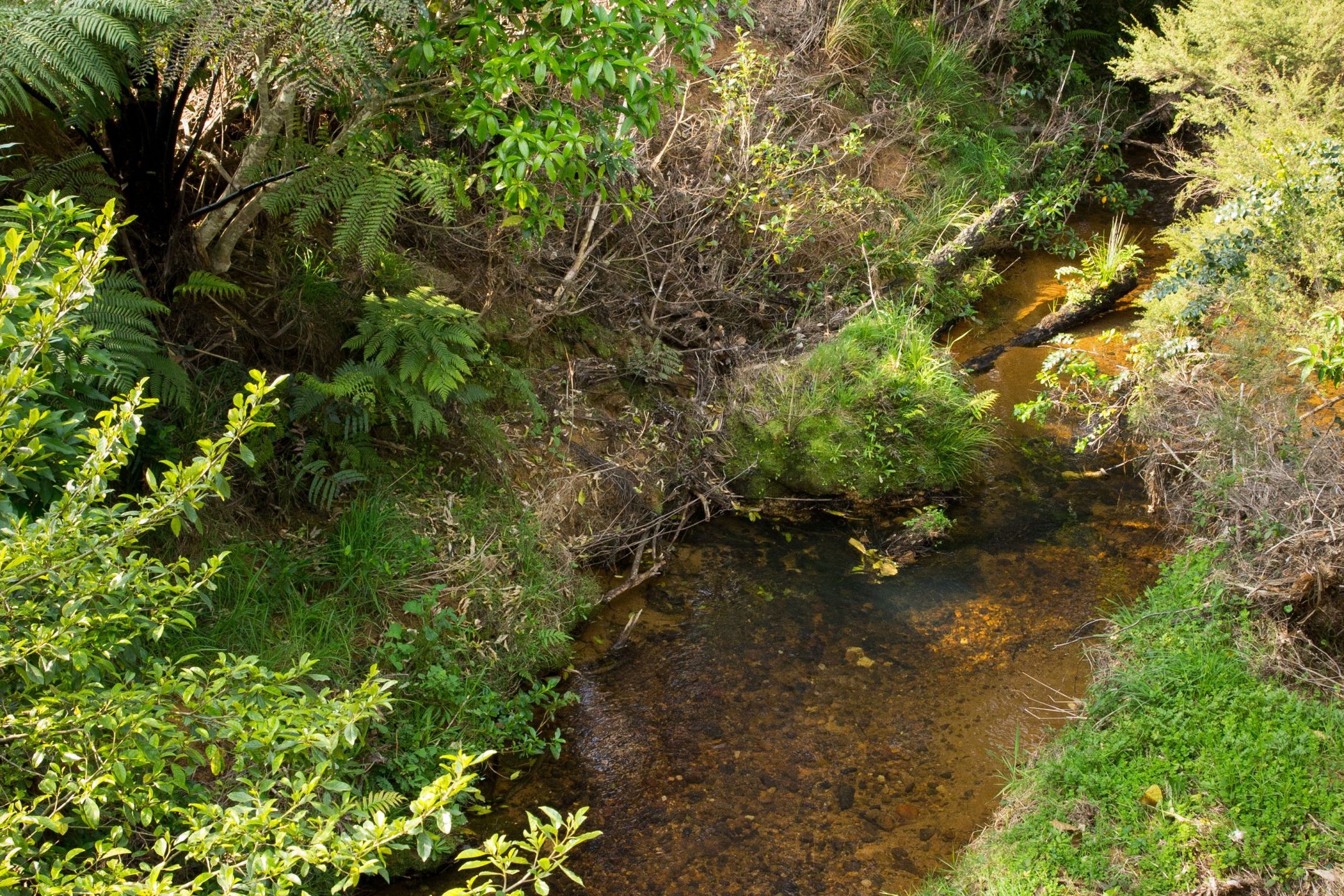Floyd Fenn has been learning from his employer Mike Williams, since he was a 12-year-old milking helper – five years on he is still learning – now as an NZ apprentice and soon to be supported by the government under the Apprentice Boost scheme. Jackie Harrigan met the life-long learner.
Not many 17-year-olds have their own line of branded workwear – but Floyd Fenn of Floyd Fenn Farming thought, why not?
“I just thought it would be fun and so I played around with a logo on my notepad and got them embroidered on to winter and summer beanies and caps, and also on my overalls and woollen jersey.”
“Who doesn’t want their name on their beanie?”
Floyd’s good name means a lot to him – he’s the kind of chap who works hard and makes every day and every job his absolute best.
“It’s my name on the cap, so I want people to think that I have a good work ethic.”
Floyd works as an ‘experienced farm assistant’ for Mike and Sharon Williams on their 165-hectare Shannon dairy farm, peak milking 400 Friesians and in the 2019/20 season producing 170,000kg milksolids (MS).
Floyd has been working for the Williams full time since December 2019 – but he has been with them for a lot longer.
Mike headhunted him when he was 12, offering him the chance to learn how to milk cows after school, when they chatted at the Shannon Rugby Club after prizegiving.
“I have always been local, I used to bike around here after school, Mike gave me overalls and some gumboots and taught me how to cup cows – he paid me $5 for each milking and I seemed to have a knack for it.”
Monday nights soon grew to Monday, Wednesday and Friday and then every weekend and school holidays until Floyd left school after achieving his NCEA Level One.
“I didn’t mind school – I actually liked science and maths and I got the top mark in the Manawatu for Horticulture Level One but I don’t regret it – I missed my mates a bit to start off with.”
But he is playing rugby with the Shannon B team (and won the best back of the year award) and keeps busy with work, hunting and speedway.
As an NZ Apprentice training through Primary ITO, Floyd is continuing to learn, which he loves.
“Mike and Sharon offered to support me through training so I enrolled in Primary ITO and started at Level 3 Milk Quality (which was 10 classes in Feilding), then I did Food Safety and Milk Quality, Dealing with dairy farm effluent, which was two sessions in Foxton.”
“The logistics, legal side and best practice around effluent gave me a bit of clarity.”
Next was the Level 3 calving – all about calving, mating, best practice on rearing calves – “the training is really good to build on the practical stuff that I have learnt on the farm.”
“Even my boss is picking up new things through my training – we used to feed hay, but I learnt that straw is better for rumen development.”
For the first season it was just Mike and Floyd full time on the farm – and the duo managed to lift milksolids by 8% and do the highest daily production ever for the farm, while driving down the somatic cell count to an average of 102,000 for the season, all of which Floyd is pretty proud of.
“I really make sure I milk the cows out properly and break the seal before I take off the cups – I do everything by the book and to the best standard I can.”
This season they have two part-timers, both from Shannon. One does morning milking and the other the afternoon – which frees Floyd up to fetch the cows and colostrum mob, collect and feed calves, shift break fences and feed out on the runoff across the road.
Floyd is not one to sit still, and has learnt lots of skills alongside his dad, who has a lifestyle block and works as a production engineer, so many skills are coming in handy on the farm and for the speedway where they do their own fabrication.
Rather than cart broken farm gear to the workshop in town to get fixed, he turned his hand to it – repairing welds on the hipclamps, the calf rearing gear and the boom sprayer so far.
He also spent three hours overhauling the farm motorbike one evening – cleaning, servicing and changing oil – “it went much better after that.”
“I’m a jack of all trades – master of none – and everything that I do – if my name’s on it, I do it to the best I can, I put in 100%.
“I like to take pride in what I do – I don’t want to be known as someone who does shit farming.
“My dad taught me to take no shortcuts – to work hard wherever you are.”
Floyd likes to get out hunting in the Tararua Ranges, initially with his dad, and now with some mates, and he thinks nothing of a six-hour tramp to Burn Hut to experience the bush and enjoy the scenery – and hopefully bag a deer.
Living on his own is fine, although he doesn’t really like the bills that come with it, and he says he has the cooking and healthy eating side sorted.
“I have been cooking since I was really little, I was in the kitchen helping mum and dad out since I was four.”
With a sister who is a chef, and is good for the odd ‘How To’ message, Floyd usually has a big cookup on Sunday ‘like it’s for a standard family’ – then he stores it in containers in the fridge and eats it for dinner and lunches for the week.
This country boy says he’s not into city life and loves the “free-flowing” farming lifestyle where he can be doing something different every day.
“I love the variety of farming, and sunny days (like this) makes it 10 times better.”
“I don’t think of it as a job – it’s more of a lifestyle – you have to love what you do.”
He has his goals and is finessing the way to get there.
“I have decided to save really hard and buy a house to rent out – because I can borrow 90% of a loan for a house, whereas land you can only borrow 70% – so I can buy a house with a smaller loan and rent it out, and keep saving hard to pay down the debt and save up for land with a 30-50% deposit.”
The only thing that might dissuade him from moving up through the dairy industry is a stint in the army.
“I have always wanted to get in the SAS – I have watched hours of SAS training programmes – but farming is definitely my long term goal.”
More trades academy funding
Vocational training in the dairy sector (and right across the primary industries) is heading into an exciting time with the restructure of the sector under the new title and more funding for Trades Academy places in high schools, says Primary ITO CEO Nigel Philpott.
The new structure brings all vocational training under the same umbrella and makes training whilst moving around the industry much more seamless for learners.
“Whereas the training providers used to operate in competition with each other, now they will be in a partnership model and trainees can move easily between providers.”
In June the Government announced $32.3 million extra for Trades Academies and Gateway programmes, with 1000 more Trades Academy places in secondary schools, doubling the existing capacity.
“If more students have the chance to experience the career possibilities of farming and horticulture while they’re at school, they are even more likely to then take advantage of the free industry training and apprenticeships that are also on offer, and go on to be the industry leaders of the future.”
The uptake of Apprenticeships and training has been very pleasing, Philpott says, adding 1500 farm apprentices exist compared to 1100 this time last year.
“We have had huge interest from Northland, Waikato and Canterbury in particular.”
There will still be demand for short courses but the mix has shifted to trainees completing all the courses under the apprenticeship structure.
“Visa holders are still keen on the short courses, and so the ITO is pulling courses apart and making them into modules that can be completed as microcredentials.
Also called ‘just in time learning’, the short courses can be much more flexible and taught and completed in time for seasonal activity – like a two week ‘preparation for calving’ course that is taught in a classroom, then the learning used on farm and the microcredential awarded.
“The qualification authorities are becoming much more flexible and making sure the learning suits the person and the seasonality of the job.”
Pipi – Pathways into primary industries
Work has begun on building a Pathways into the Primary Industries programme to help potential primary industry workers understand the ways to get into the sector.
“Employers say that it is not a well-understood pathway and the programme with help inform potential entrants and their gate-keepers (parents and teachers).
Portraying the suite of pre-employment training, online learning and taster course opportunities then working with employers to improve their understanding of attracting and retaining staff, the programme will include rolling out good news stories and a badging system that aggregates all of a person’s qualifications and work experiences to carry with them.
Funding has been sourced from the TEC (Tertiary Education Commission) to start work building a digital platform to hold all of the information, for each young person to have on their phone, acting like a Passport to work.
Apprentice boost
Dairy farmer Mike Williams has just applied for the government’s Apprentice Boost scheme, funded from August 2020 as part of the Covid-19 recovery. The scheme entitles Mike up to $16,000, over 20 months to subsidise the wages of his NZ dairy farming apprentice, Floyd Fenn.
The funding is accessed through MSD and the farmer claims the subsidy on a month-to-month basis – $1000/ month for the first 12 months, followed by $500/month for the next eight months.
The apprentice needs to be already employed by the farmer and actively involved in training, says Manawatu Primary ITO training advisor Dani Donovan.
“There has never been a better time to put staff through training,” she said, explaining that along with the wages boosting funding, training is funded fees-free by the government until the end of 2022.
The level three and four training is worth more than $3000.
Apprentices need to have completed the level two milk harvesting module or pre-employment training and be willing to commit to stay in training for three years, while working through their apprenticeship.
My goals:
1 year: complete milk quality /ITO training / beat farm kg MS record
5 year: farm manager, running a farm, employing staff
10 year: 50/50 sharemilking
20 year: Farm owner, + 1 staff member, 200 cows
By 2053: contract milking farm as well.





